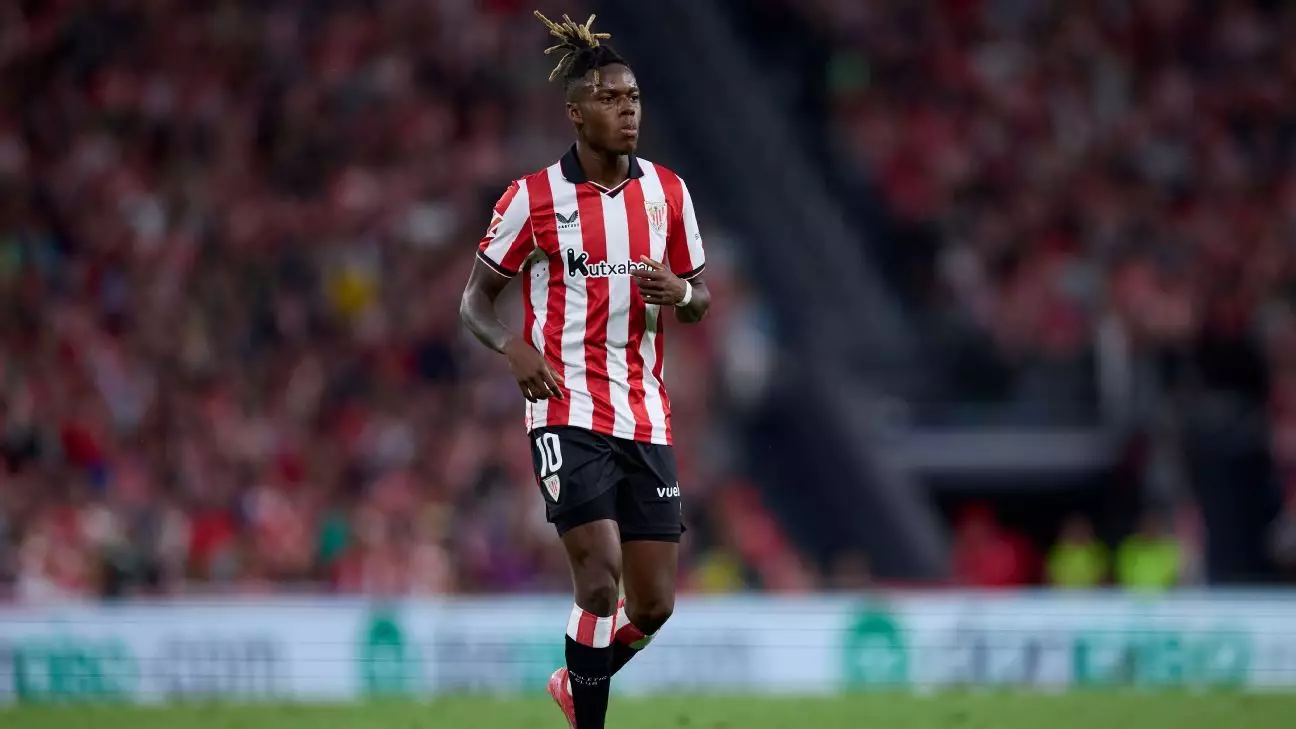In modern football’s feverish transfer season, patience often runs thin, and Nico Williams epitomizes this new player’s assertiveness. The 22-year-old winger, nurtured at Athletic Club, is pushing Barcelona to expedite his transfer before the squad reconvenes on July 9. Unlike the typical narrative of players chasing lucrative deals abroad, Williams has already agreed to a competitive salary with the Catalan giants, rebuffing more lucrative offers from outside Spain. His insistence on an early resolution underscores a growing trend of players wanting clarity and stability to avoid distractions during pre-season preparations. Williams clearly understands the psychological pressures tied to returning to training amid unresolved transfer questions, and his strategic urgency puts Barcelona in a delicate position: act swiftly or risk losing goodwill from a key talent who has shown loyalty and professionalism.
Diogo Leite: PSG and Others Eye a Bargain-centered Defender
Meanwhile, in defensive circles, Paris Saint-Germain has thrown its hat into the ring for Union Berlin’s Diogo Leite. At 26, the Portuguese center-back is attracting interest from top-tier European clubs, including Bayer Leverkusen, plus several Premier League and Serie A teams. The convergence of suitors suggests a seller’s market, yet uniquely, Leite’s situation tilts somewhat in the buyers’ favor. His contract running until 2026 means Union Berlin isn’t under immediate pressure; however, they appear willing to let him go for approximately €13 million—a surprisingly modest fee for a player with solid Bundesliga experience. This price tag could make Leite a shrewd, undervalued acquisition for PSG, who often face challenges juggling ambition with financial pragmatism in the post-Fair Play era. For Leite, the move could elevate his profile and offer a platform to compete at the highest continental level, assuming PSG can finalize the deal amidst stiff competition.
Newcastle’s Ambition Faces Resistance in Joăo Pedro Chase
In England, Newcastle United’s pursuit of Brighton’s Joăo Pedro highlights the growing financial muscle of the Magpies but also the complexity of transfer negotiations. Despite tables allegedly agreeing on a substantial offer near £50 million, Brighton has firmly rejected the proposal. Pedro’s potential exit still seems likely given Newcastle’s consistent interest and Chelsea’s parallel monitoring, yet any transfer hinges on the player’s assurances of becoming a guaranteed starter. This scenario reveals a nuanced dynamic: clubs are making bold moves, but players retain significant agency, increasingly dictating terms based on sporting projects rather than purely monetary considerations. Newcastle’s tenacity here indicates long-term strategic planning rather than impulsive spending, but their ambition is being tested by Brighton’s steadfastness and Pedro’s specific conditions.
Fenerbahce’s Jhon Durán Bid and the Sancho Uncertainty
Meanwhile, Fenerbahce’s pursuit of Jhon Durán from Al Nassr marks a bold step in reshaping their attacking options. The Colombian youngster, only 21, is reportedly open to a return to European football, backed by personal talks with Fenerbahce’s high-profile manager Jose Mourinho. This negotiation spotlights how managerial influence increasingly shapes player decisions, where direct communication can tilt interest towards particular leagues or clubs. However, Fenerbahce’s more famous target, Manchester United’s Jadon Sancho, remains hesitant. Sancho’s decision is conditional upon Fenerbahce’s UEFA Champions League qualification, underscoring how competition level weighs heavily on top players’ choices—a reminder that even financially attractive offers can falter if sporting ambitions aren’t met.
The Midfield Tug-of-War: Yunus Musah’s Potential Departure
In Italy, the saga of Yunus Musah involves both Wolverhampton Wanderers and Nottingham Forest courting the Milan midfielder. Musah’s 22 years make him a valuable asset for clubs seeking dynamism and youthful versatility in midfield. Although a prior Milan-Napoli deal involving Musah unraveled, rumors of reignition linger, suggesting that negotiations with Musah remain fluid. This situation exemplifies the unpredictable nature of transfer windows, where clubs juggle financial packages, player preferences, and broader squad strategies. Wolverhampton’s interest signals their willingness to compete for emerging talents, while Nottingham Forest’s involvement adds more complexity—revealing that high-caliber players with multi-league experience have multiple suitors probing their future.
Transfer Window Trends: From Strategic Urgency to Player Power
Taken as a whole, these stories illuminate a broader shift in the summer transfer market’s character. Players like Nico Williams and Joăo Pedro exert more influence than ever, demanding clarity, promising stable roles, and sometimes even shaping timelines. Clubs, in turn, navigate a layered chessboard, weighing financial imperatives against competitive goals, while the ever-present influence of managers directly engaging with players adds another dimension. The fluctuating valuations and divergent strategies—from PSG seeking budget-friendly reinforcements to Newcastle pushing blockbuster bids but facing resistance—showcase that transfer seasons are hardly predictable. They are billowing with ambition, negotiation tactics, and the raw human element of choosing where and how careers evolve. Amidst this, one thing is certain: those who move fastest and most decisively without bypassing the player’s agency will most often secure the best recruits.

